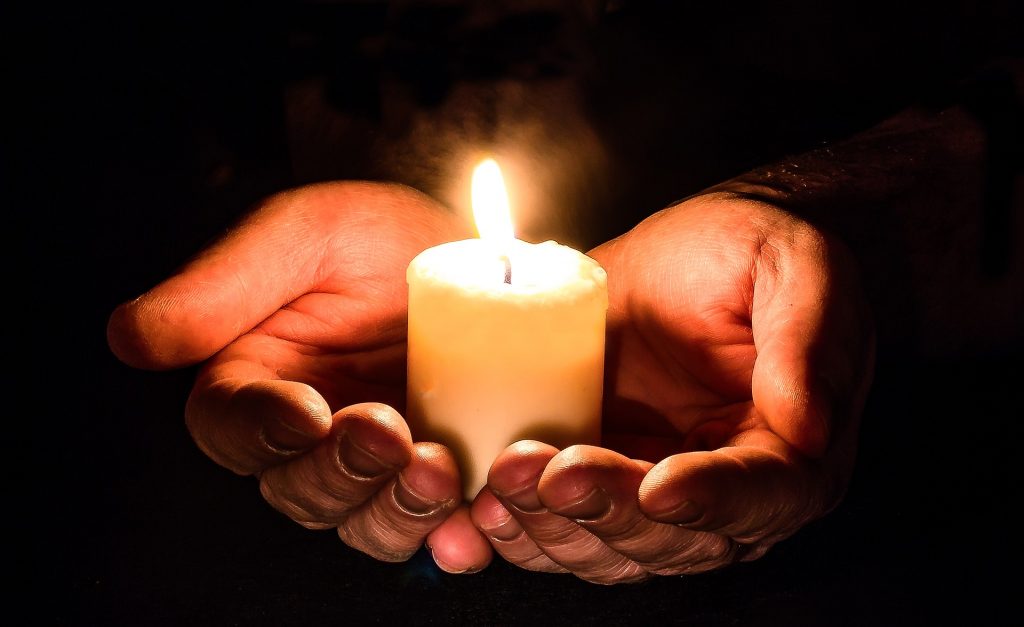
by Harshita Ganesh – Follow @harshikapoor17
Growing up, I had been conditioned to believe that therapy was for the weak, for “messed up people.” I had always been told there are no reasons for me to be sad because I was given everything any child could ever want. While it was certainly true that my parents worked very hard to give me a certain quality life, complete with all the materialistic things their child could ever need—something felt absent. When I was young, I didn’t know that what I felt was a void filled with darkness or emptiness. I just thought that’s how kids felt. I thought it was normal.
As I progressed through middle school and junior high, the void began to widen and manifest itself in my schoolwork. I felt an uncontrollable need to be the best at everything, though unfortunately, was never talented enough to be the best at everything. So I fell deeper into the hole that became almost inescapable. But the young and budding me tried its best to ignore it. When I did try to express it, I was shut down. I was ignored by my friends, my family, and was dismissed to be an angsty teen that was so spoiled that she didn’t know what real sadness was. So naturally, I shut up. I told myself that I was normal and too privileged to feel negative feelings.
In high school came the hormonal years of confusion, drama, and the pursuit of the future began. That void I spoke of earlier turned into a black hole. Every year I sunk further into it and kept searching for a way out. To fill the void, I threw myself at every extracurricular activity that somewhat appealed to me and tried hard to be the best at it. Again, I was rather mediocre at almost everything I did, but I was busy. I didn’t have time to think about the black hole that was swallowing me.
[Read Related: #TherapyTalk: How to Talk About Feelings When You’ve Been Told Not To]
When I turned 17, I thought things would get better, and for a while they did. Until my self-worth was tested more than I could have ever expected with an incident that I’m still not ready to talk about. Every night I almost cried myself to sleep, but every morning I woke up, I told myself I was strong and could deal with anything that came my way because other people had gone through worse. I ignored the pain that infested my body. That pain manifested into anger—seething, fuming anger—which eventually manifested itself into fear.
Things fell apart hard when I started my first year of college. But because things fell apart, things started to come back together. One night I looked at myself in the mirror, my shirt stained with tears, my eyes smudged with eyeliner, my cheeks stained with mascara. That facade of me trying to hold it together faded. It disappeared. More than anything, I could see that I needed help. I had completely fallen apart and I had no one to help me piece myself back together but myself.
So that day, I decided to call the university mental health center and scheduled a crisis appointment. For the first time, I stepped outside my dorm with no makeup on because it was important for the therapist to see how much I was falling apart. The scariest thing I had ever done in my life was to step into the elevator of the Student Health Center and press the button that read “4.” But the most comforting moment of my life was sitting in the waiting room of the fourth floor. All I saw were students who looked like me. Every person was a mirror and in every single one of them I saw myself. For the first time in my life, I wasn’t alone.
[Read Related: #TherapyTalk: Learning to Have Faith in Myself Again]
A young African American male in his late 20’s came into the waiting room and called my name. I nervously stood up and followed him to his office. As I sat down, the man grabbed a clipboard and some sheets of paper. He then settled into his chair and smiled.
I said blatantly,
Is this where I talk about my problems and you pretend to care?
He laughed and then said,
This is where we discuss what you think is wrong and where I help you find solutions.
Somehow I didn’t feel scared to talk. I just let everything out without a filter for a solid 45 minutes. Somehow he helped me feel safe and that it is okay to not be okay. We combed through the details, self-analyzed together, and he helped me find outlets to express my issues. My first therapy session was somehow the hardest but the easiest thing I had ever done. My self-adequacy was called into question for the first time in a positive way, as opposed to a negative way.
Needless to say, I went to him for a year, once a week without fail. For that one hour, I felt safe, I realized I wasn’t as bad as I thought, I had the ability to do well, and I could be the best version that I wanted. Every time I would leave feeling better, recharged, and equipped for the next week.
Going to therapy was by far the best decision I could make. It gave me something that no one else could: hope. The process was rough. The process is never easy, and it won’t be easy. But every road traveled that leads to happiness is never easy. It is filled with bumps, potholes, reconstruction, traffic, and pitfalls.
For me, time on its own couldn’t heal wounds, but because of therapy, I was given the bandages I needed to speed up the process. And for that, I couldn’t be more grateful.
May is Mental Health Awareness Month. If you would like to contribute to our #TherapyTalk series, please email us at Staff@0mq.349.myftpupload.com with your submission.
 Harshita Ganesh is a South Indian-Bollywood enthusiast; a princess who is here to fight patriarchy; a dancer; a pianist; and an explorer. Her main love is writing scripts on topics regarding empowerment and hopes to one day have one of her films made. She is currently an undergraduate engineering student in Europe and hopes to get a law degree soon after.
Harshita Ganesh is a South Indian-Bollywood enthusiast; a princess who is here to fight patriarchy; a dancer; a pianist; and an explorer. Her main love is writing scripts on topics regarding empowerment and hopes to one day have one of her films made. She is currently an undergraduate engineering student in Europe and hopes to get a law degree soon after.




